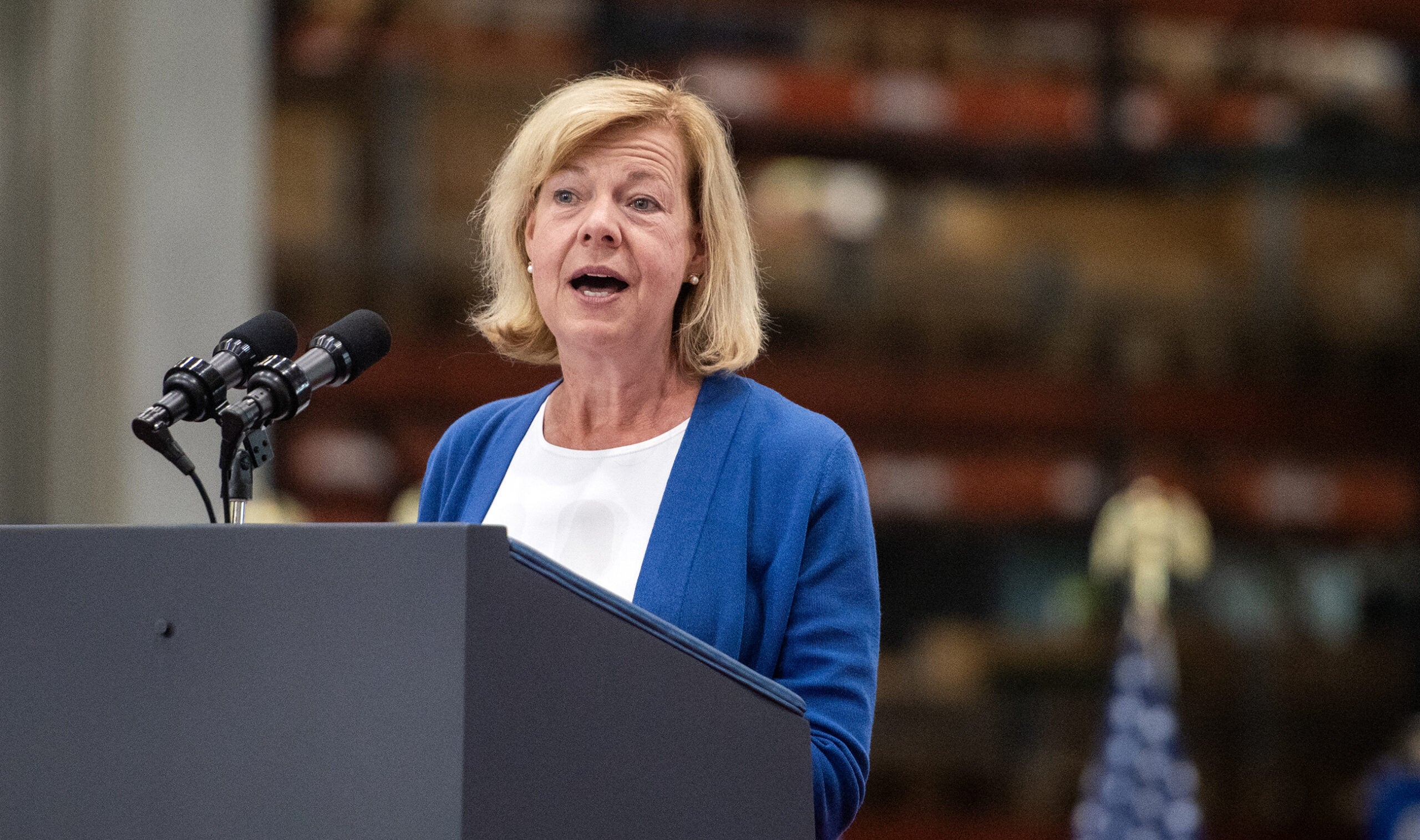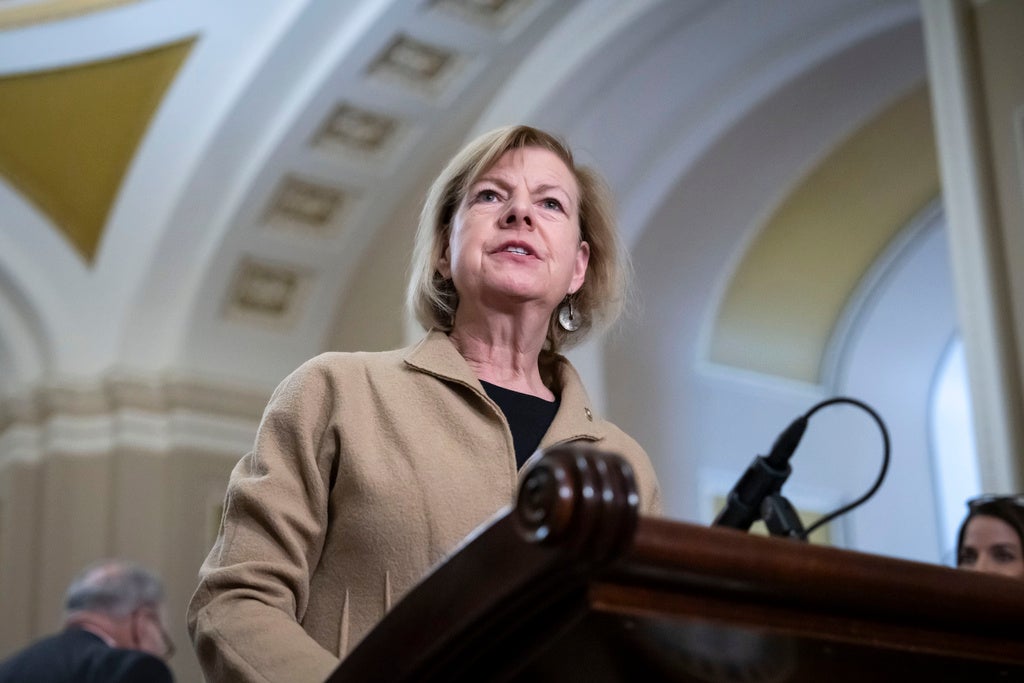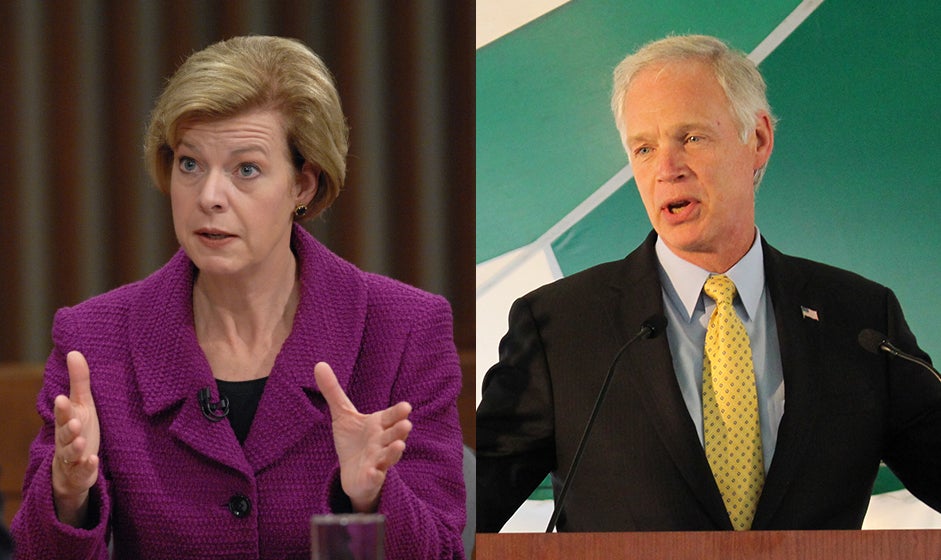While Wisconsin U.S. Sen. Tammy Baldwin has yet to draw a high-profile challenger for next year’s election, leaders of both parties agree there’s still time for a Republican to emerge and take on the two-term Democrat.
Baldwin won her first election to the U.S. Senate in 2012, defeating former Republican Gov. Tommy Thompson by nearly 6 percentage points. In 2018, she defeated former Republican state Sen. Leah Vukmir by almost 11 percentage points.
Baldwin is generally viewed as less vulnerable than other Democrats up for reelection throughout the country next year, and no current or former elected Republicans have yet entered the race. U.S. Reps. Mike Gallagher and Tom Tiffany have both opted against a run.
News with a little more humanity
WPR’s “Wisconsin Today” newsletter keeps you connected to the state you love without feeling overwhelmed. No paywall. No agenda. No corporate filter.
But during appearances on WPR’s “The Morning Show,” party leaders noted there’s still almost a year to go before Election Day.
“Ron Johnson didn’t get in until well after the start of the year when he ran, and he was literally a virtual unknown,” Republican Party of Wisconsin Chair Brian Schimming told WPR last week.
“When people tell me how Tammy Baldwin’s gonna be tough to beat, I always say, ‘Geez, has anyone seen Sen. Russ Feingold around lately?’” Schimming said.
Johnson came out of nowhere to defeat Feingold in 2010, and has since been reelected twice, including in a 2016 rematch against Feingold. In 2022, Johnson won a third term over former Lt. Gov. Mandela Barnes by a 1 point margin.
Schimming contended Feingold was more popular at the start of the 2010 campaign than Baldwin is now. A Marquette poll from last month showed 40 percent of voters had a favorable opinion of Baldwin, while 37 percent had an unfavorable view.
“The truth of the matter is, Tammy’s been a 95 percent vote with Joe Biden, whose numbers on most issues are upside down in Wisconsin,” Schimming said.
Democratic Party of Wisconsin Chair Ben Wikler had a different take on Baldwin’s popularity.
“If you travel the state, you’ll hear from so many Wisconsin voters and citizens that they know that Tammy Baldwin is fighting for them,” Wikler said. “If you talk to farmers, if you travel through rural areas and ask about broadband internet — she has played such a big role in making sure that our federal government works for regular Wisconsin families.”
Wikler said his party has to take the race seriously, even without a major opponent.
He said Democrats contacted 105,000 voters during a campaign kickoff earlier this month.
“We saw Ron Johnson, a very wealthy business guy, run a campaign where he announced late in the game, ran a ton of ads that made it seem like he was a moderate,” Wikler said. “And right now there are some very, very wealthy people who are looking at running campaigns, building on that model.”
Marquette University Law School poll director Charles Franklin said Johnson is a great example of how a candidate can start late and still win. Doing so takes resources to run a campaign, he said, as most voters often don’t know much about their choices nearly a year before the election.
Even candidates who announced their candidacies earlier in previous cycles “were still barely known” as late as June of the election year, Franklin said.
Republicans reportedly considering the race include Milwaukee-area businessman Scott Mayer and Madison businessman Eric Hovde, who ran an unsuccessful campaign for U.S. Senate in 2012.
“If we’re talking about millionaires like Hovde and Mayer, they are certainly believed to have enough financial resources and a willingness to pay for their campaign,” Franklin said.
Franklin said Democrats nationally are likely to lose U.S. Senate seats in 2024. Even if Republicans win a majority in the Senate, he said a Baldwin victory could help minimize Democratic losses.
Wisconsin Public Radio, © Copyright 2025, Board of Regents of the University of Wisconsin System and Wisconsin Educational Communications Board.






